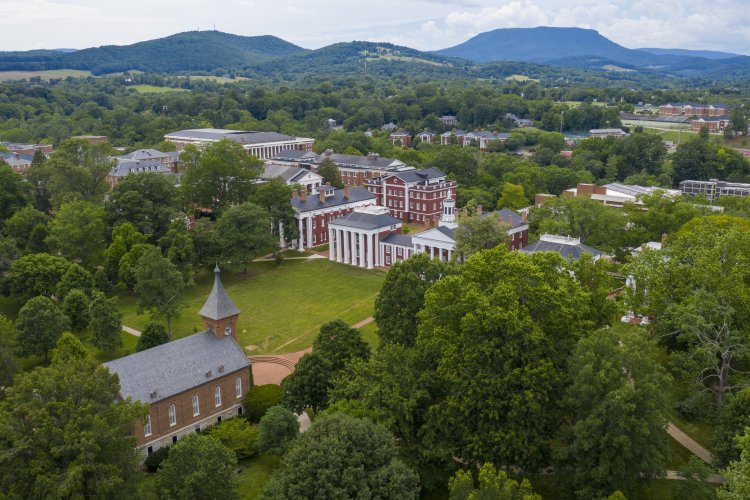Why Small Colleges Are Engaging Lobbyists For the First Time
Certain small liberal arts colleges are concerned about the impact of the endowment tax and are apprehensive about being grouped with institutions such as Columbia University amidst Donald Trump's criticism of higher education.

Traditionally, managing government relations has been a key duty for college presidents. However, according to lobbying disclosures, at least five colleges from U.S. News & World Report’s top 20 list of liberal arts colleges—Williams College, Pomona College, Claremont McKenna College, Davidson College, and Washington and Lee University—have recently brought on lobbyists for the first time in their histories. None of these institutions provided comments or returned requests for interviews.
“There are some institutions that have decided that because of the risk, they feel like they need to hire some outside expertise to bolster what they’ve already been doing,” said Steven Bloom, assistant vice president for government relations at the American Council on Education.
The lobbying firms engaged by these colleges for education-related issues include Lewis-Burke Associates for Williams College, theGroup DC for Pomona College, and Brownstein Hyatt Farber Schreck for Davidson College. Holland & Knight has received the largest compensation from the five schools, collecting $80,000 during the first quarter from Washington and Lee University and Claremont McKenna College, as reported in disclosure documents. The lobbying firms either declined or did not respond to requests for comments.
A significant reason behind the hiring of lobbyists is concerns over an expanded endowment tax—a 1.4 percent tax on university investment income introduced in 2017 to help offset Trump’s broader tax cuts. The number of schools subject to this tax varies annually based on factors like student enrollment and endowment size. In 2023, only 56 schools paid this tax, bringing in $381 million according to IRS data.
The tax applies solely to institutions with more than 500 paying students and an endowment exceeding $500,000 per student. Consequently, universities with larger student populations may be exempt, while smaller colleges with modest endowments and fewer students face tax liabilities.
House Republicans are exploring a significant expansion of taxes on college and university endowments, potentially imposing much higher rates based on a sliding scale of wealth, as per four sources granted anonymity for sharing insights about the GOP tax package.
According to two of these sources, under the proposed tiered system, schools with endowments valued at $750,000 or less per student would be taxed at the current 1.4 percent rate. In contrast, those with endowments between $750,000 and $1 million per student would face a 10 percent rate, and institutions with endowments exceeding $1 million per student would incur a 20 percent tax rate. The details of this tax bill are not finalized and are subject to change, as noted by these sources. A spokesperson for the committee did not respond promptly to a request for comment, but Bloomberg first reported on the existence of such a tiered proposal.
Around 30 schools concerned about potential tax changes, including some small colleges that have recently hired lobbyists, have formed a consortium to coordinate their strategies. These schools vary in size and do not fit neatly into existing higher education associations, necessitating the creation of a focused group. The consortium opted not to provide comments.
In recent years, Republican lawmakers have suggested various methods to increase tax revenue generated by this endowment tax. Notably, in 2023, then-Sen. JD Vance suggested raising the tax rate to 35 percent. Another proposal aimed to exclude foreign students from enrollment counts for tax purposes, thereby increasing the number of schools subject to the tax.
For several smaller liberal arts colleges hiring lobbyists, a clear goal emerges: to distinguish themselves from prestigious institutions like Columbia University. Columbia has faced Republican criticism over its handling of pro-Palestine student protests last year and is not currently liable for the endowment tax. Discussions among officials indicate that a desire to modify tax criteria to impact Columbia is further motivating the current lobbying efforts, two sources shared on condition of anonymity.
“I’d be shocked if they come out of this and aren’t paying the tax,” one source commented. Columbia did not provide a response to a request for comment.
Washington and Lee University, a school that has recently retained a lobbyist, did not experience the student encampments seen at Columbia during last year's protests, which it is highlighting to lawmakers. With an endowment nearing $2 billion, Washington and Lee is currently subject to the tax.
Another institution, Wabash College—a small men's college located about an hour from Indianapolis—does not currently pay the tax but is nearing the threshold for qualification given its approximately 850 students and around $400 million endowment. Barnes & Thornburg, a firm that has done legal work for Wabash, has registered to lobby for the first time on education and tax policy issues. The firm did not reply to a request for comment.
“No one that I’ve talked to says the endowment tax is really meant to hit Wabash College,” said President Scott Feller. “We’re an unfortunate side effect, I think, of where our lawmakers want to take this tax bill.”
The ongoing endowment tax debates occur alongside the Trump administration's broader campaign against higher education. President Trump has cut billions in grant funding for universities, citing antisemitism on campuses, and has mandated significant operational changes as a condition for releasing funds. Following Harvard University’s lawsuit over these funding cuts, Trump threatened to revoke the institution's tax-exempt status. Recently, the Education Department announced a ban on Harvard receiving new federal research grants. “Some of this is a political attack on higher education,” Bloom noted.
Some colleges are eager to emphasize the political distinctions between themselves and the Ivies which have attracted Trump's ire.
“I think the best-case scenario is that the difference between our status and those of the top 1 percent will be acknowledged as the law is updated,” Feller remarked, pointing out that under current law, Wabash would be taxed at the same rate as Harvard, despite the latter’s significantly larger endowment.
This is where the lobbyists step in.
“The work of colleges and universities needs to be explained in plain language,” Feller expressed. “I’m a lifelong academic, so I can say academics aren’t always great at that. I think that it’s our responsibility, even as a small college, to work with our government relations partners to make sure that the story of Wabash College and other colleges is being told in the language that people can understand.”
Mark B Thomas for TROIB News












